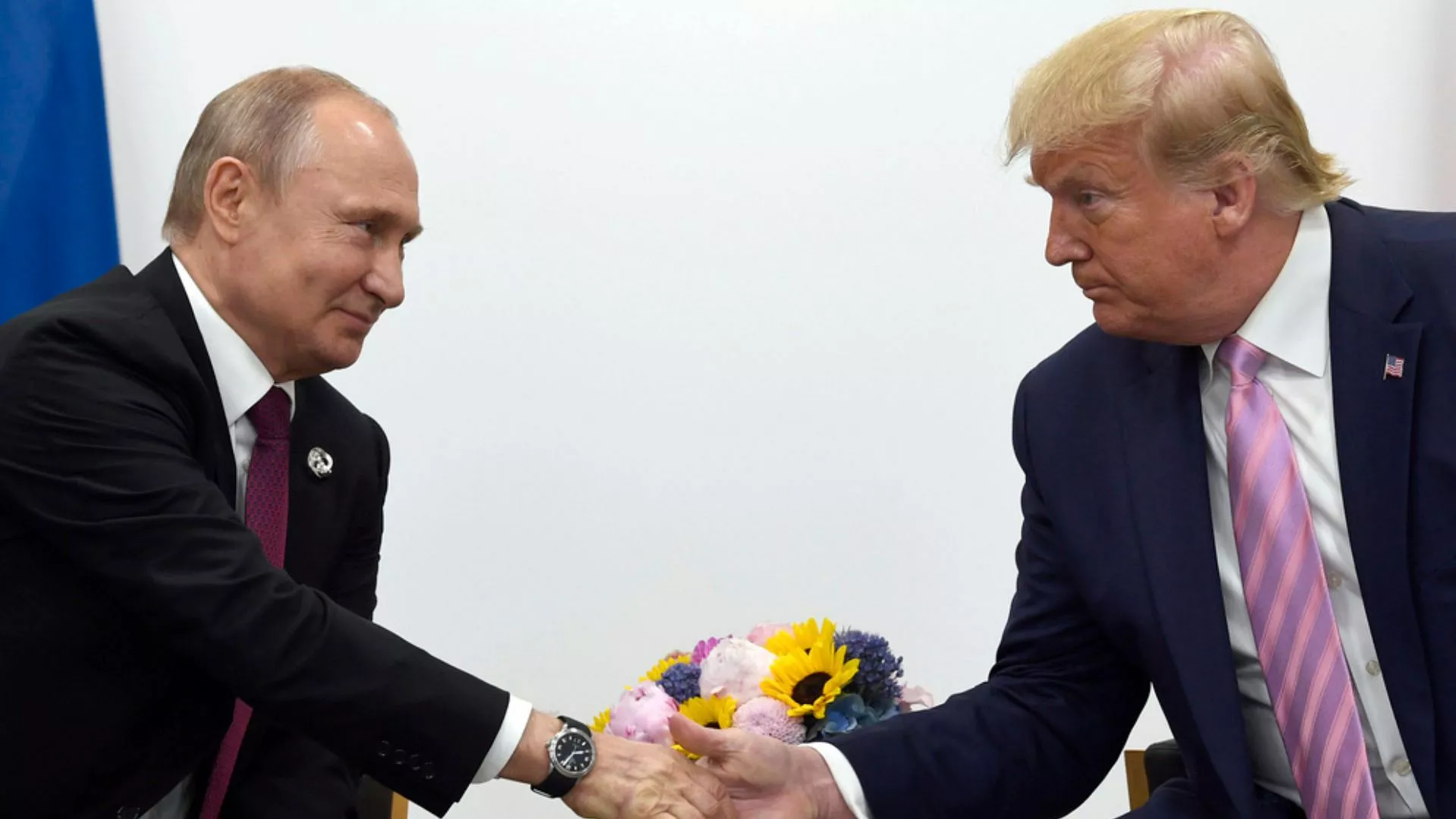
Russian President Vladimir Putin appears to be leveraging his strategic delay tactics to manipulate US President Donald Trump, as negotiations surrounding a ceasefire in Ukraine take center stage. Putin’s response to the US-backed proposal follows a familiar Kremlin playbook—expressing openness while introducing conditions that favor Russian interests, thereby prolonging discussions and maintaining leverage.
A Calculated Response to Trump’s Proposal
Putin’s reaction to the US plan was not an outright rejection, nor was it a clear acceptance. Instead, he called the initiative “great and correct” in principle while introducing new demands that make the deal unworkable for Ukraine. This carefully measured stance seems designed to entice Trump, who is eager for a diplomatic victory.
By prolonging discussions, Putin is buying time while Russian forces continue their offensives, particularly in the Kursk region, a strategically significant area. This move ensures that Russia retains its upper hand in any future negotiations. Additionally, Putin’s insistence on addressing the “root causes” of the war—his coded language for challenging NATO’s expansion and Ukraine’s sovereignty—signals his broader ambitions beyond a mere ceasefire.
Trump’s Urgency vs. Putin’s Deliberation
Trump, eager to secure a foreign policy win, has portrayed the ceasefire negotiations as a promising breakthrough. “I think we’re going to be in very good shape to get it done,” he said optimistically. However, his enthusiasm stands in stark contrast to Putin’s calculated hesitations.
Trump’s willingness to ignore Russia’s added conditions and his past deference to Putin raise concerns about whether he is being played by the Kremlin. His administration has already signaled concessions, including indicating that Ukraine will not be allowed to join NATO—one of Russia’s key demands. Furthermore, Trump has halted military aid to Ukraine and cut off intelligence-sharing, only to reinstate support after significant backlash, demonstrating an erratic approach that benefits Putin.
The Global Skepticism Toward Russia’s Intentions
While Trump remains hopeful, many global leaders remain skeptical. Latvian Defense Minister Andris Sprūds expressed doubts about Russia’s willingness to engage in an honest peace process, warning that Putin is merely employing “salami tactics”—achieving strategic goals incrementally rather than through outright military conquest.
Retired Adm. James Stavridis noted that Putin is maintaining a position between a clear “yes” and a definitive “no,” effectively stalling while keeping diplomatic doors open. The delay allows Moscow to maintain pressure on Ukraine while preventing Trump from claiming an immediate diplomatic success.
The Real Stakes: Is Trump Negotiating or Being Manipulated?
Trump has long touted his relationship with Putin, but critics argue that his approach often leans toward appeasement rather than tough diplomacy. Since returning to office, he has shifted US sympathies away from Ukraine and toward Russia, demonstrating a willingness to pressure Ukrainian President Volodymyr Zelensky into accepting terms that may ultimately favor the Kremlin.
Trump’s track record raises concerns about how far he would go to accommodate Putin’s demands. If the Russian leader were to insist on the removal of NATO forces from Eastern Europe or even push for Zelensky’s ouster as a condition for peace, would Trump comply? His past rhetoric, which included falsely labeling Zelensky a dictator, suggests a troubling openness to Russian narratives.
Putin’s Endgame: A Return to the Global Stage
Putin’s ultimate goal appears to be more than just a ceasefire in Ukraine. He envisions a broader restoration of Russia’s influence on the world stage, potentially through a renewed diplomatic relationship with the United States. Trump’s call for Russia’s return to the G7, his admiration for authoritarian leaders, and his past reluctance to criticize Putin raise concerns that he may be too willing to accommodate the Kremlin’s ambitions.
While Trump insists he alone can bring an end to the Ukraine war, the real question remains: Is he actually negotiating a peace deal, or is he merely being outmaneuvered by Putin’s strategic patience? If the latter proves true, then Putin’s stalling is not just a diplomatic maneuver—it’s a masterclass in playing the long game against a president eager for a quick win.